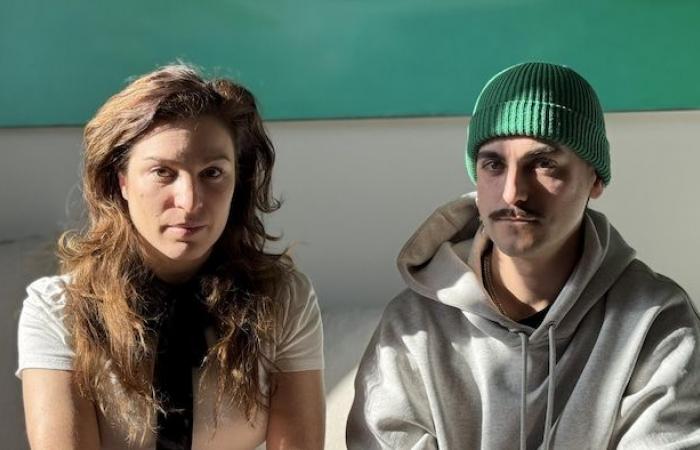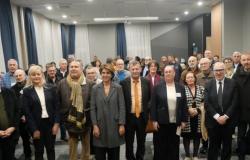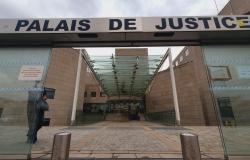Artisans from the Quebec cultural scene held a third major demonstration, Wednesday afternoon, in Montreal, to ask the Legault government to raise the budget of the Conseil des arts et des lettres du Québec (CALQ) to 200 million dollars.
This sum represents double the funds announced in July 2024 by the CALQwhich provided financial support of $104 million for 2024-2025.
The CALQ awards scholarships and grants to projects judged to be the best by a panel. Clément de Gaulejac, one of the founding members of the Grande Mobilization des artistes du Québec, noted that several of the rejected requests, although considered excellent, will not see the light of day due to lack of budget.
According to Mr. de Gaulejac, the increase in funds would be used to revalorize the living conditions of artists and their work
.
Conservation of Quebec culture
My work only exists because there are grants
told director Alix Dufresne to -, a few hours before participating in the demonstration. The artist, who was notably invited to the Avignon Festival twice to present her pieces, would not have been able to attend this prestigious event if she had not received the help of the CALQ.
I benefited from subsidies, I’m lucky. We created pieces like Hidden Paradise or Discontents in civilization who toured in Quebec and internationally
says Ms. Dufresne. Despite a meager setting, she noted the extent of the costs to give performances and promote her project internationally.
We are validated internationally, we are invited to go to a prestigious festival, but our government does not support us enough so that we can go without going into debt.
Maxime Carbonneau, director and co-director of the creative company La Messe Basse, struggles to understand the government’s intentions. I find it strange to see the government say it is defending the French language when the money does not follow for culture, which is the main vehicle for defending the French language.
Mr. de Gaulejac makes the same observation. What we want to highlight through our movement is the gap between this speech of support and the reality of financial support which is minimal.
Open in full screen mode
Alix Dufresne and Maxime Carbonneau participated in the 3rd Great Event for the Arts.
Photo : - / Naomie Duckett Zamor
The world of culture has not been spared from inflation, which increases production costs. At the moment, if we want to do a tour, just move a set, it costs a lot more than before, in particular, because the transport costs are enormous, notes Mr. Carbonneau. Then, on the other hand, we hope for full houses, but spectators perhaps put theater less at the center of their financial priorities.
Same observation for artists, who struggle to deal with the precariousness of the profession. Most artists do not live off these subsidies and all have work in parallel, recalls Mr. de Gaulejac. If we could put up with this relative precariousness in previous years, today, with inflation and the housing crisis, there is a decline and many artists are stopping their practice.
This is a reality that does not escape Alix Dufresne, who turned to teaching since she cannot make a living from her art.
A pressure that is felt
Asked about the demonstration which took place in front of the Montreal office of Prime Minister François Legault, the Minister of Culture, Mathieu Lacombe, said he felt the pressure from the groups. The budget process is continuing. I gave them my word that we were going to work together, so we will see the conclusions in a few months.
A few hours before the start of the event, the office of the Minister of Finance invited the organizing members of the Great Mobilization of Quebec Artists to present their proposals as part of the 2025-2026 pre-budget consultations. A meeting will take place soon.






